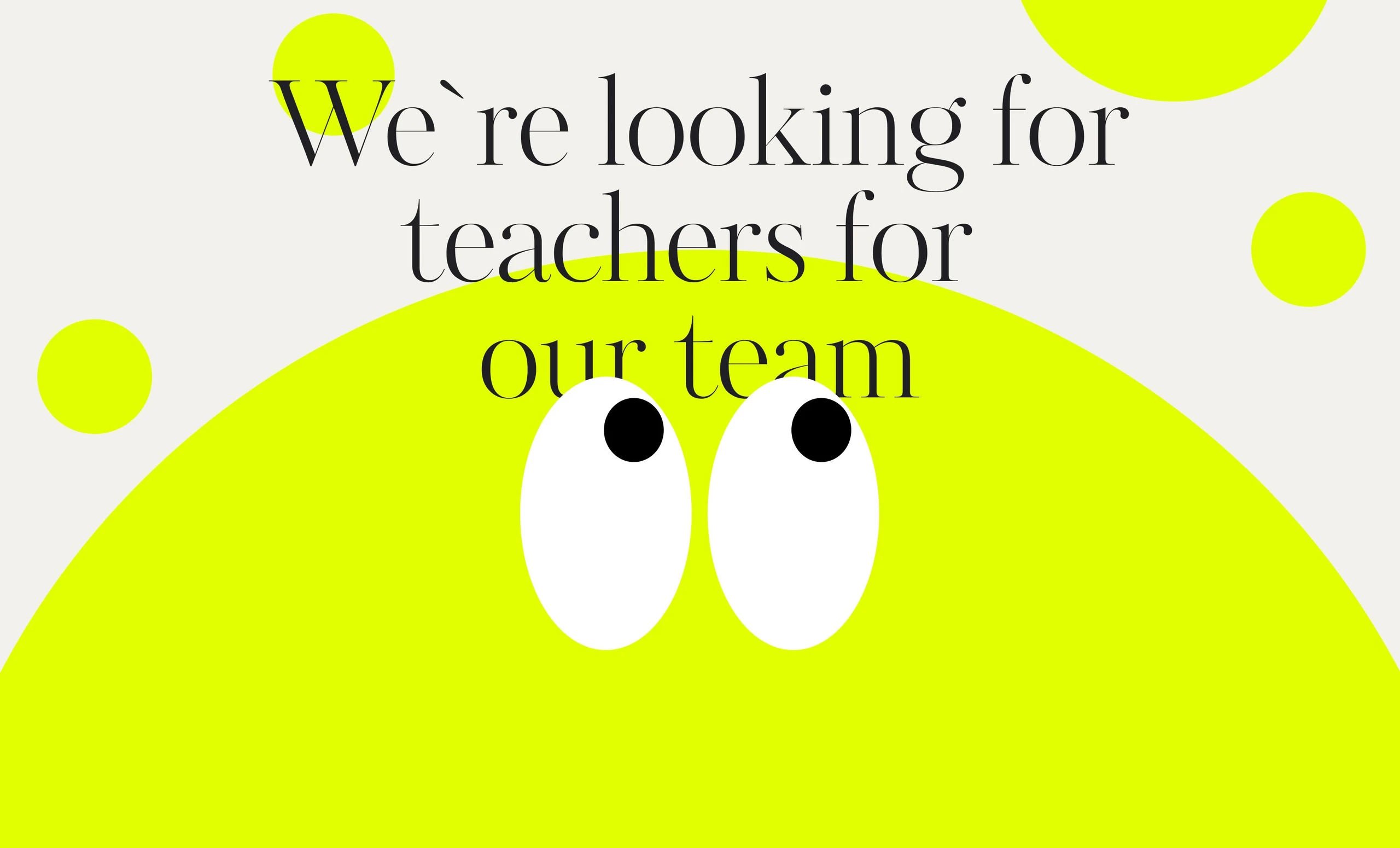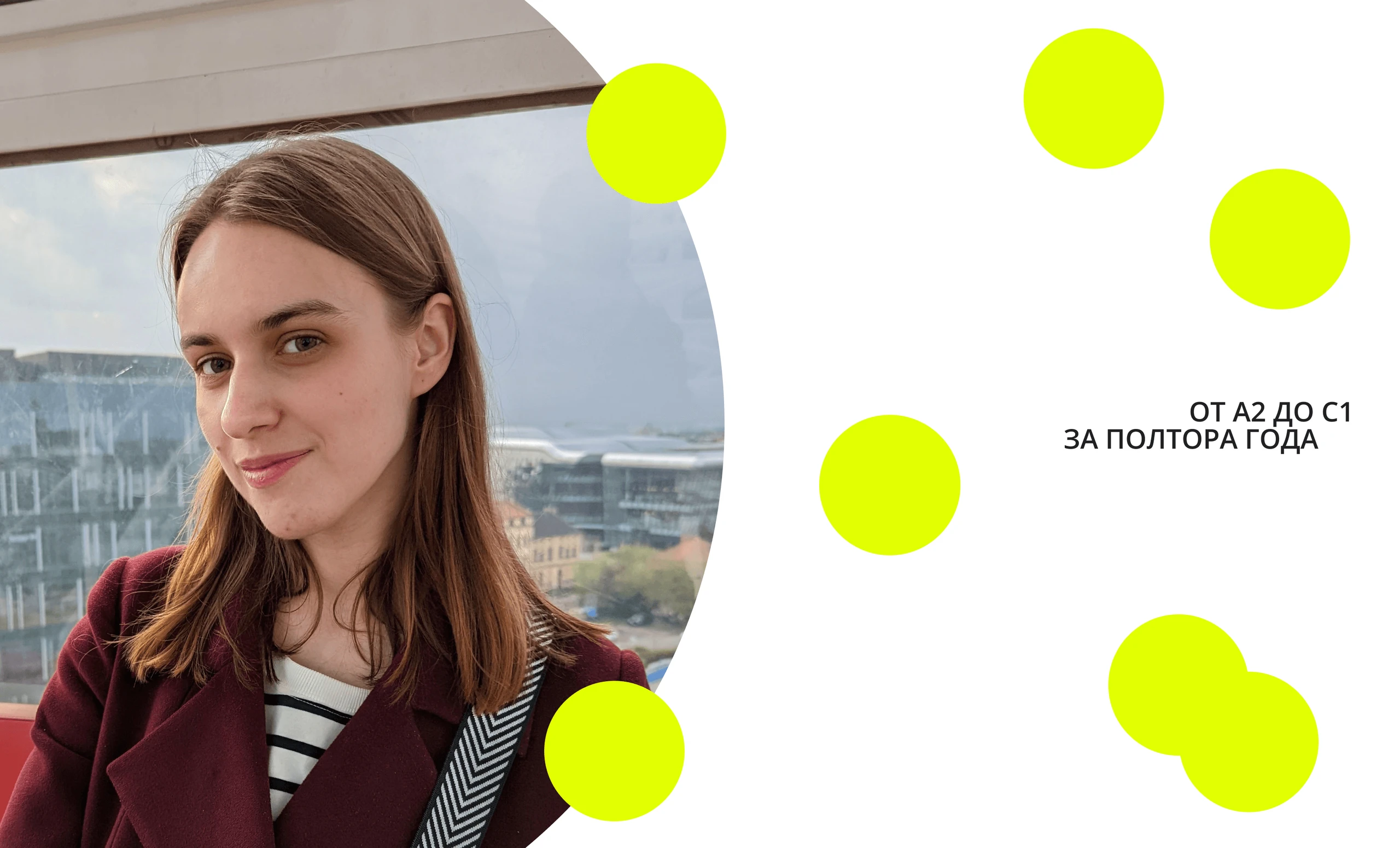11 Jun. 2023
Toward C2
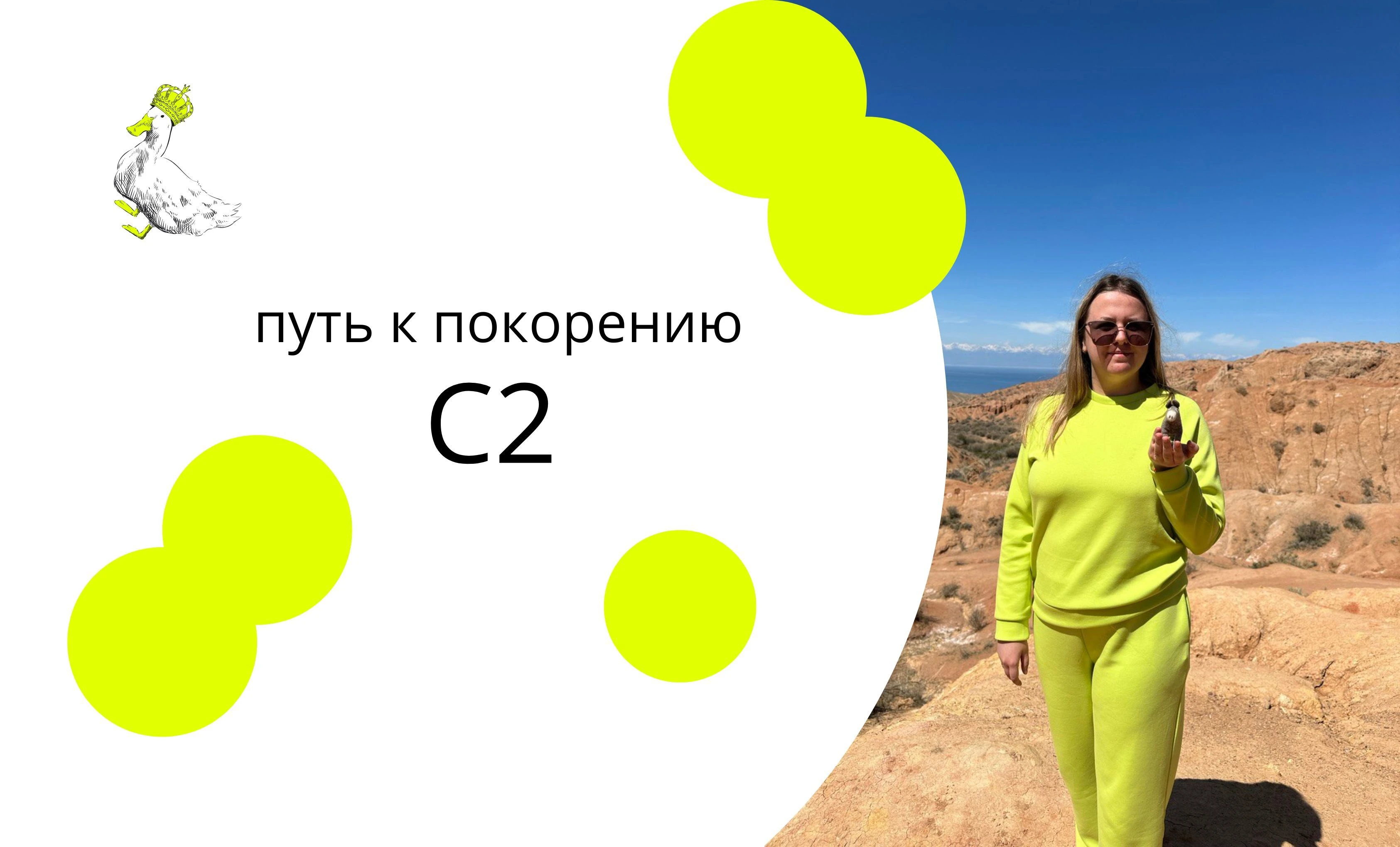
foreword
In this article, our school's senior teacher, Julia Polkhov, will share her journey to finally acing the C2 Proficiency exam with a Grade A, and what it's like to feel like a master of the English language.
To answer that, you have to understand where I was at that point in time. I've always had a good grasp of the language: solid language courses in school, followed by a degree in linguistics. Although the education didn't really give my language skills a boost (we all know the state of such education in Russia), it kept me in the loop and connected to the language. Then I did a master's in translation. The first year, we had a decent teacher and used C1-C2 textbooks, but we only had two classes a week—one of which was purely focused on grammar, which was pretty dull and irrelevant. The second year, the teacher changed and the person who took over was clearly not up to scratch. So that year was a bit of a letdown and I can't say I made even a tiny bit of progress, or even maintained my level. After graduating, I drifted away from the language for about a year and a half, working on translating documents, certificates, contracts, and other formal stuff. That didn't really help me improve because translating official documents is its own beast, so I was stuck in a rut.
Everything changed when I was offered the chance to go back to teaching. I knew that I was a bit rusty because it had been two years since I'd actively used my skills. I pondered whether to take the opportunity at all—I wasn't really itching to leave translation, but staying there was becoming a grind, and the monotony was getting to me. Plus, I wasn't even sure if my level was good enough for teaching anymore. Turned out it was, but I knew I wanted more, I wanted to keep growing. At that point, my level was C1, but I've always aimed higher. I knew that C1 wasn't something I'd be content with; I wasn't going to settle. The crucial thing here—and I really want to emphasize this—is that my motivation came roaring back. For two years, I hadn't wanted to work on improving my language skills; I was more focused on growing in the field of translation, reading a lot, and mostly just living that life.
My language proficiency allowed me to read and watch whatever I wanted without a hitch. I didn't realize that I hadn't been writing or speaking for about two years. The opportunity to teach reignited my passion for the language, making me aim to master it completely.
Well, that's a long story. I started my training with Lera in September 2021. We followed a CPE preparation textbook, and Lera also compiled heaps—no, MOUNTAINS—of vocabulary and a good chunk of grammar exercises (around 80 pages a week on average). My prep was intense: lots to digest before each lesson, a sea of vocabulary to learn, and so on. My first Quizlet module alone, which took about a week and a half to two weeks to cover, had 250 entries, most of which were idioms, phrasal verbs, proverbs, and other such valuable nuggets.
The workload was enormous. Each week required me to memorize a ton of vocabulary, complete a bunch of grammar exercises, and write around three or four letters. On top of that, I had to tackle various smaller tasks like listening, reading, and other assignments. Part of the reason my workload was so high was my "go big or go home" mentality (and Lera probably knew I could handle it). Instead of just aiming to pass the C2 level in a standard textbook, we combined that goal with CPE exam preparation, which naturally amped up the intensity. Preparing for any exam is hard enough—it requires time, effort, and an insatiable desire to move forward—but in my case, it was a tad more challenging. There wasn't a single day when I spent less than two hours studying. After a long day at work, I'd sit down to do exercises, write, read, listen, and drill vocabulary with Quizlet—rinse and repeat.
I was always swamped, with most of my free time devoted to the language. But here's the kicker—I loved it.
This wasn't just grinding; spending all that time on the language gave me leaps and bounds of progress, and it showed. I thrived on tackling heaps of grammar and learning tons of vocabulary, idioms, and phrasal verbs. During lessons, I would whip out expressions like "They seem to be on cloud nine," "Having a whale of a time," "Ecstatic," and so on. I would walk into class and just knock it out of the park, simply because I could. It gave me a buzz. I had such a wealth of vocabulary that I could think of five synonyms and at least three idioms for any given situation. At one point, when asked to explain new idioms, I found myself explaining idioms with other idioms, and that sent me over the moon. Every hour spent cramming words made me level up for the next lesson, making me feel more at ease and capable. Every second spent preparing was worth its weight in gold.
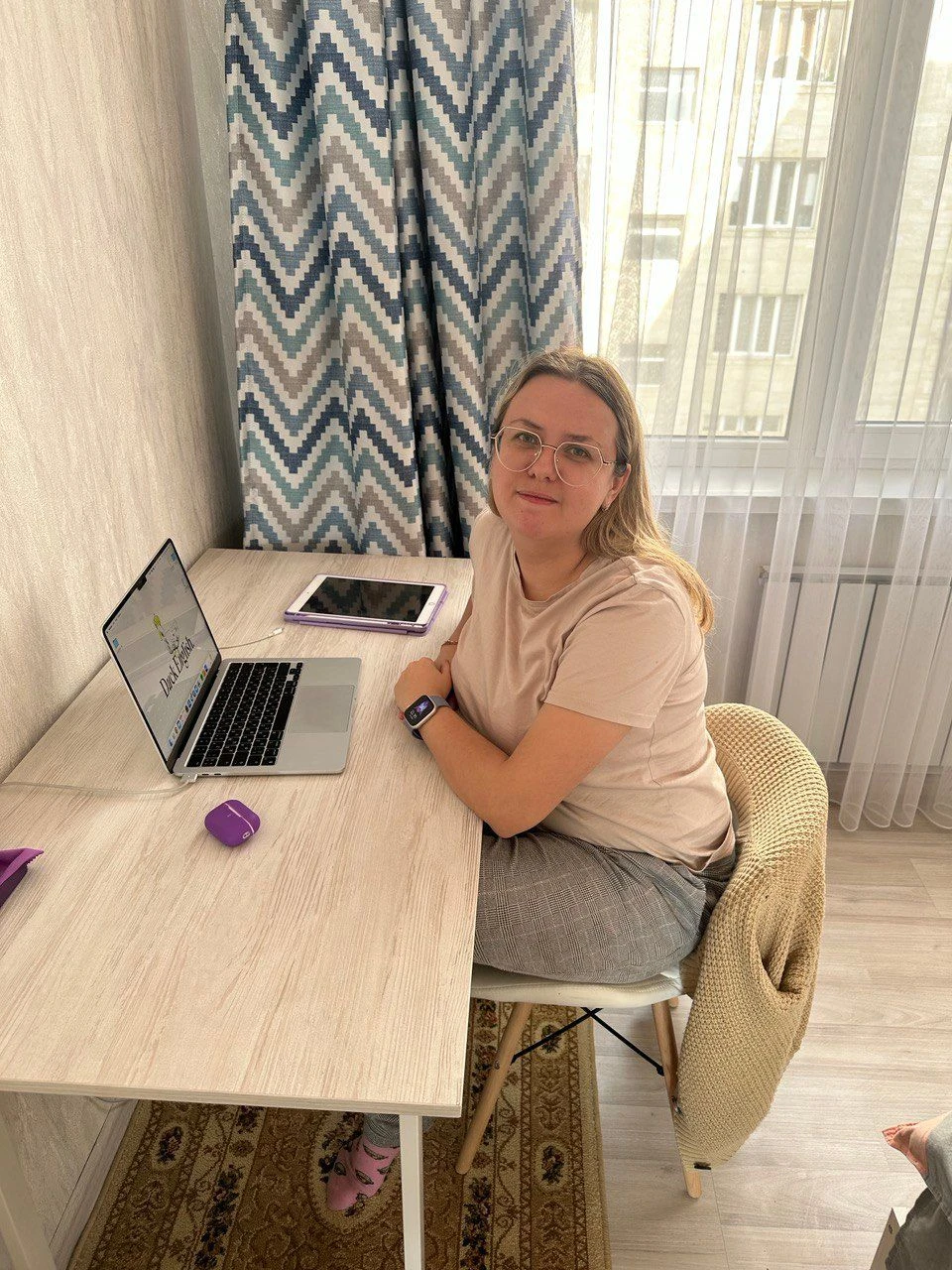
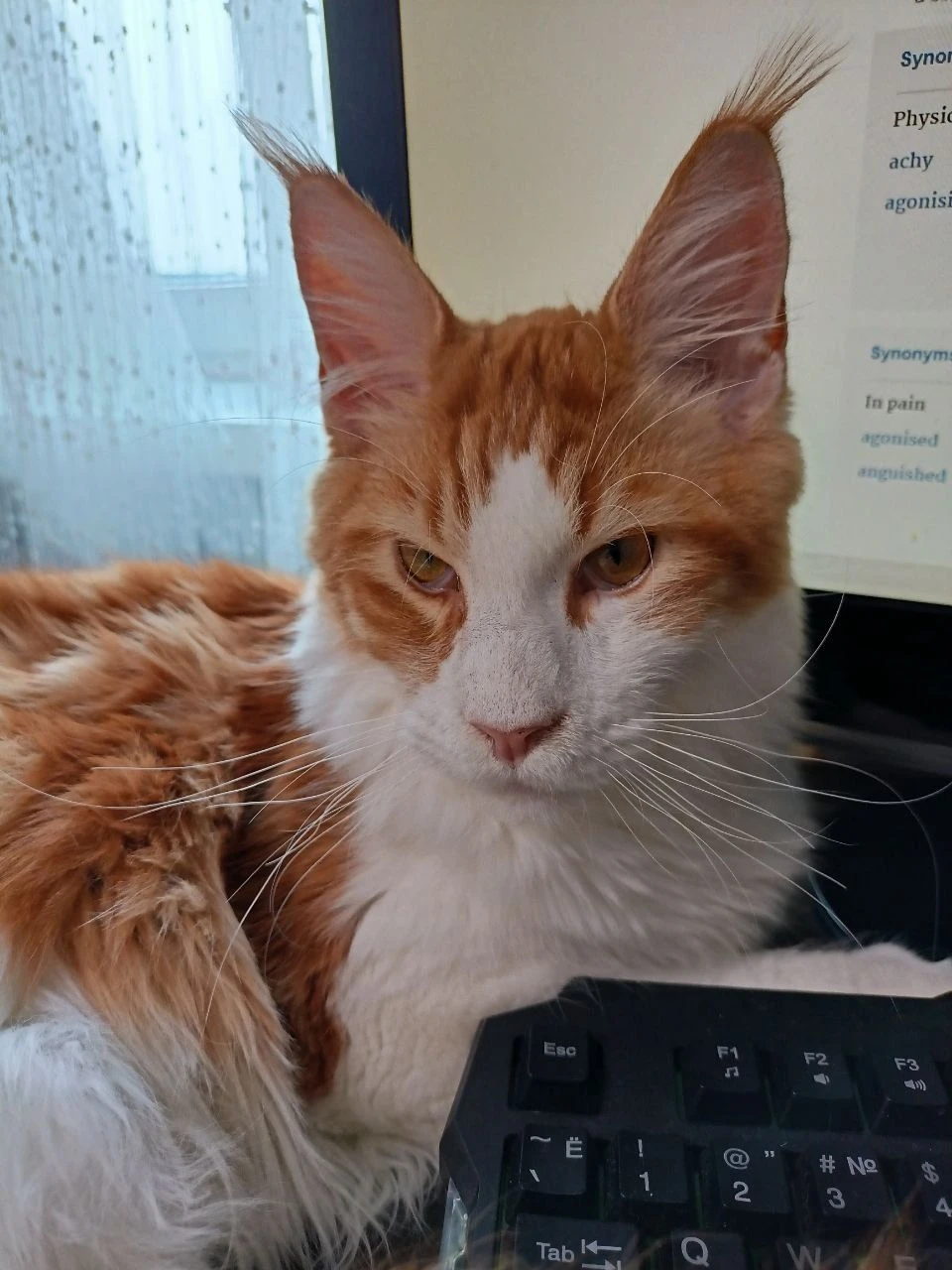
Beyond that, I really enjoyed the lessons themselves. We did a lot of talking, had in-depth discussions, and I always had the chance to put into practice what I'd learned. Each lesson was a slam dunk in terms of effectiveness. I was always swamped, barely had any free time, and was working at least an eight-hour day. Sure, I was beat, but I always looked forward to the lessons. I think that says something.
A lot was expected of me—but I knew what I signed up for. I also realized the huge gap between C1 and C2 levels, and knew I had to bust my hump to bridge it. There were challenges, of course. For example, writing was a real struggle for me; I hadn't done serious writing in years. At first, each essay took me hours (3-4) to complete. I'd start off not knowing what to write, then find myself short on words, then go way over the word limit. Sometimes I'd craft a masterpiece; I still remember writing about "Meowter," a social network that taps into cats' brains and posts their thoughts as "meowts." But sometimes, I realized I'd written pure gibberish. I'd try to polish my writing, only to overshoot the word limit even more. Note: Now, I can bang out any essay in about 35 minutes, no sweat, and I absolutely relish the beauty of my own text.
On top of all this, we spent a lot of time honing our exam-speaking skills. This was no walk in the park. It required a ton of focus and energy, not to mention quick thinking on my feet—which isn't really my strong suit. I often found myself facepalming over the cringeworthy stuff I'd say, just to avoid dead air. It was especially awkward in paired activities when I'd spew out some wild nonsense while describing bizarre scenarios about the pictures, only to see my partner's eyes widen in horror.
Looking back, I only have fond memories of that time. It was a fun but busy period in my life, where I worked my fingers to the bone and was worn out. But at the end of the day, I gained so much more and ended up where I am now.
I just remembered how last November I was laid up with COVID for three weeks, doing absolutely nothing. I barely had the energy to shower, let alone eat sometimes. On my first lesson back from sick leave, I realized I couldn't understand the text at all when Lera asked me to read it and answer questions. I was reading the words but they made no sense to me, like they were just jumbled up. I was horrified, thinking I'd never get back on track or be able to read properly again. But after about a month of practice, things pretty much got back to normal.
I was supposed to take the exam in May 2022, after spending almost a year gearing up for it. Back then, I was in top shape, fully tuned into the format and had made a huge leap in language skills. Even though that spring was incredibly tough for everyone, we managed to keep the ball rolling and stick to our lesson schedule. The emotional toll was high across the board, but the prep work served as a light at the end of the tunnel, offering some kind of stability and a target—the exam. However, as you may know, exams were cancelled in Russia, making it completely unfeasible to take it there. I did consider jetting off to another country in the summer, but I quickly realized my mental state simply wouldn't allow it. I didn't want to continue draining Lera's time and energy—since not only did I have mountains of homework, but she also had to sift through it all—so we agreed that I'd go it alone and take the exam whenever I could pull it off.
To be honest, that summer was a total washout for me. I was running on empty and thought I'd never get the chance to accomplish anything meaningful. My sole focus was keeping my sanity intact—it was a dark time emotionally, so I won't dwell on it too much. Let's just say my exam took a backseat. Come fall, my husband and I moved, and life threw a lot of other curveballs our way. But that's when it hit me: I was going to ace that exam after all. I signed up for May 2023 and only started hitting the books in January, meaning I had taken more than a six-month break. Sure, my writing had gone a bit rusty and I had to get back in the saddle, refresh my memory about the format and all. The same was true for speaking. But all the invaluable knowledge and skills that I'd gained from my sessions with Lera hadn't vanished. Even though I did a lot of the legwork myself—plowing through tons of books, practicing my writing, and so on—I attribute my jump from C1 to C2 largely to what I learned from her. Everything I did afterward was more about fine-tuning and adding some bells and whistles, but that core foundation is irreplaceable.
To be honest, I lost all enthusiasm for the exam about a month or two before it was scheduled. The fact that I was supposed to take it a year ago but couldn't, stretching my preparation over two years (during which I wasn't constantly studying, but the lingering sense of unfinished business was weighing on me), made me totally indifferent. I just wanted it to be over and done with. By that point, I realized I didn't even care about the outcome. When I looked at my improved vocabulary, the speed and quality of my writing, and how my speech had gotten better, I understood that the journey and the progress I'd made were what really mattered, not just acing the exam.
I was so thrilled with how much my English improved that words just can't capture it. There's no word that could describe the progress I've made and how great it makes me feel.
The exam itself went pretty smoothly; we had a comfortable setup and even had short breaks. The only hitch was that I wasn't feeling great that morning, but it didn't really throw me off my game. The exam was a breeze overall, but when it came to the listening section, my brain was just fried from the strain of having to focus intensely for three hours straight. It was like there was a fog in front of my eyes, and I couldn't concentrate properly.
The toughest part of the exam isn't the material itself; it's staying laser-focused for an extended period, which eventually fries your brain.
To make matters worse, we had the speaking section on the same day, right after all the other parts. By that point, my brain was totally fried. Lack of sleep, a throbbing headache, and nausea from the three-hour exam were already taking their toll. I had to dig deep to muster the energy to get through the day. After the exam, I was so drained that I spent the rest of the day just staring at the wall with a cup of tea (lol). I can't remember ever feeling so emotionally depleted; I had absolutely no energy left for anything.
I also remember planning to get some work done that day after the exam. But Lera said something like, "Are you kidding? You won't be able to." At that time, I shrugged it off, thinking, "It's just a four-hour exam; I'll still have the rest of the day free, why wouldn't I manage?" After the exam, I understood why. Work was the furthest thing from my mind; my brain was so overloaded it couldn't even process the simplest text. It was just not functioning.
I aced it with a Grade A, the highest score you can get. You might find it weird, but I'm not really blown away by this result. I knew I'd pass, and not just pass but get a Grade A, simply because I had a good sense of my abilities and my level. So when the result came in, my face was basically like, "Alright, cool." Of course, scoring 230 points would've been the cherry on top, but for a first-time experience taking the Cambridge exam, I think the outcome is solid. I'll probably give it another shot sometime in the future, just because, all things considered, it's a tremendous experience.
Prepping for an exam really kicks your brain into high gear and offers you a chance to level up. I've always enjoyed the buzz of being in that study mode, and I think revisiting that experience every so often is essential to avoid becoming stagnant.
0%

